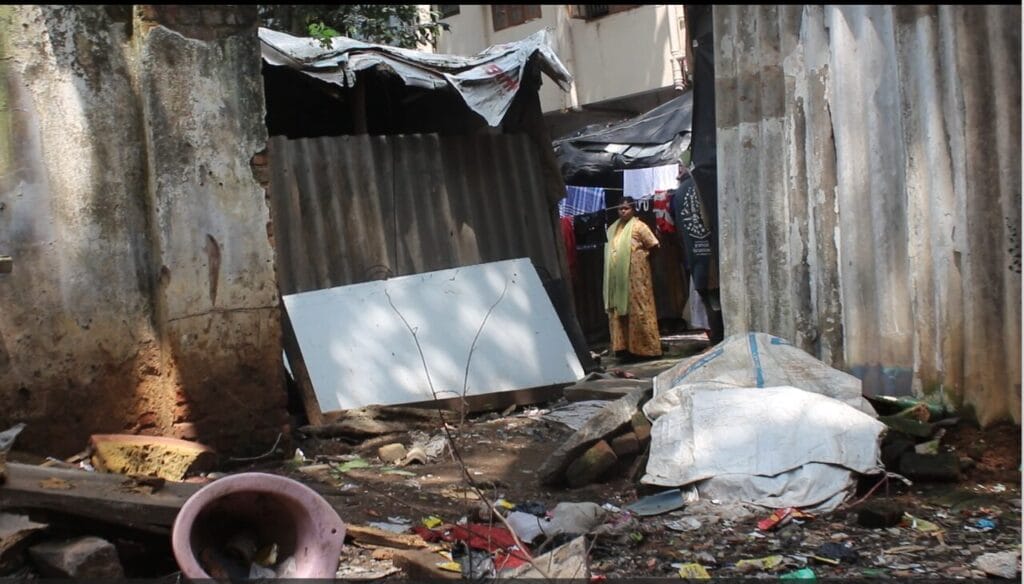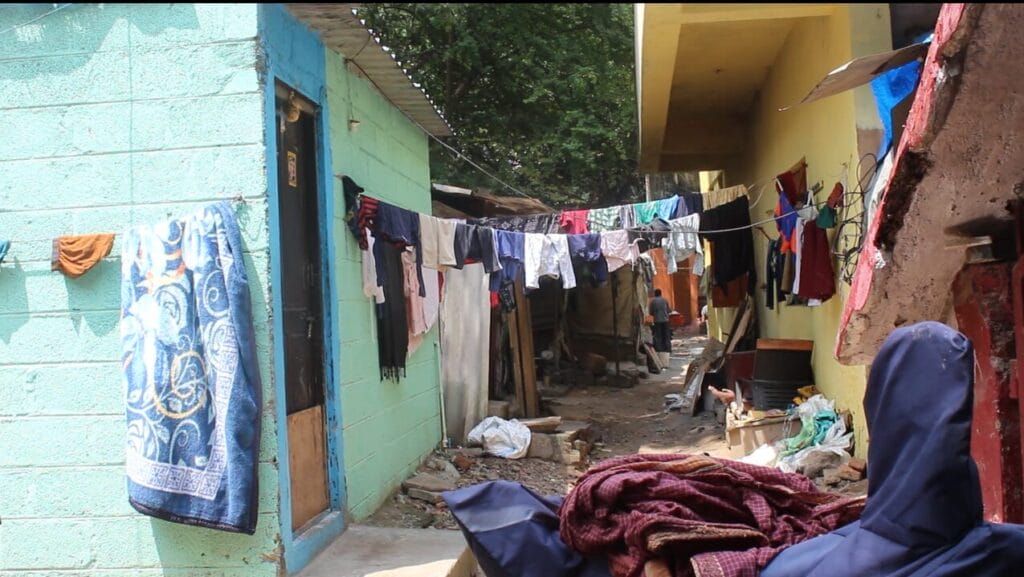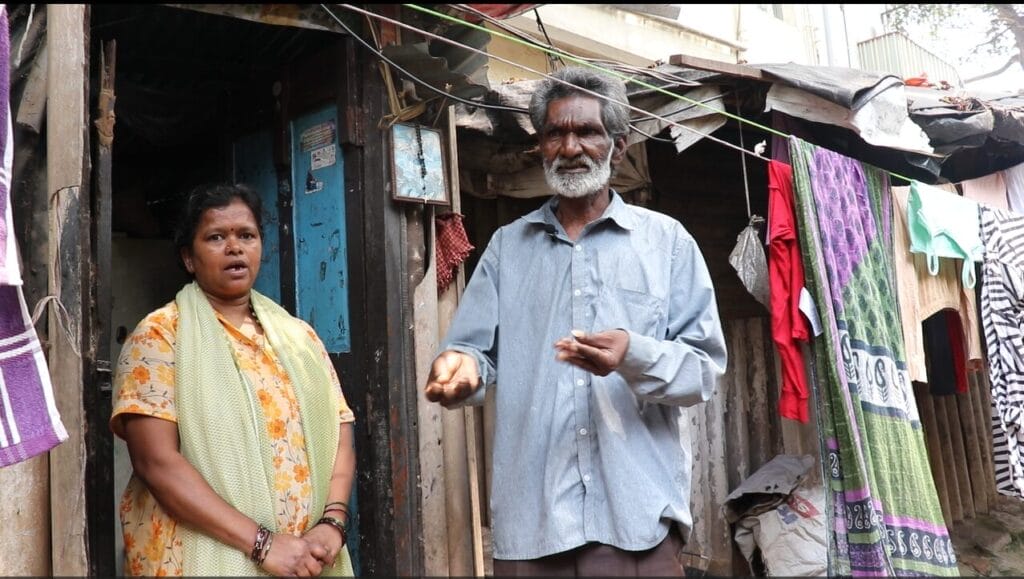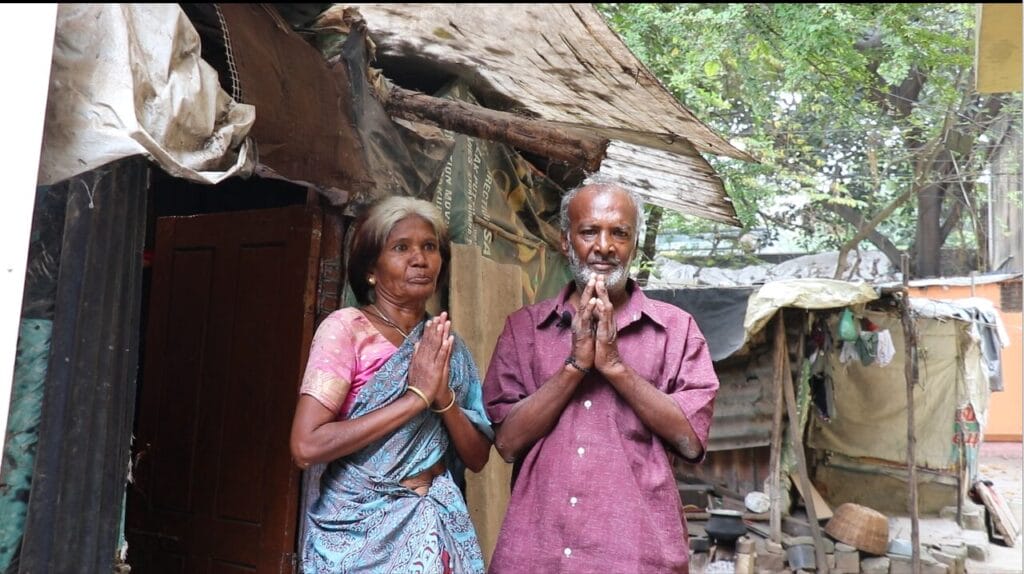Mariappa, a resident of Silicon City, who lives a few minutes away from the city’s glittering high street, leads a challenging life. He is a pit worker in Bengaluru, eking out a living from the repulsive job of manually cleaning the gutters of the high tech city. His entire family does pit work. Mariappa rues, “My body stinks.” He adds that many pit workers, several of whom live in the heart of the city, have got diseases and have even died due to their work.
Even though manual scavenging has been legally banned, it is still practised in Bengaluru. In a metropolis whose citizens call themselves progressive, there are still people who earn a livelihood by manually cleaning human excreta.
Students of College of Journalism and Mass Communication (CJMC), Dayananda Sagar University, Bengaluru, in a ground report published in CJMC Chronicle, a student-led news website, highlight the abject poverty and shocking living conditions of as many as 23 families, living in Shivajinagar, whose male members earn a living as manual scavengers.
Read more: How STPs are causing manual scavenging to continue in Bengaluru
The families clear untreated human excreta from septic tanks, clean gutters and people’s toilets at homes. They even have to pick the excreta using their bare hands and dispose of it.
Poor living conditions
Their homes are tiny, situated in narrow bylanes, and located next to gutters. The houses consist of a single continuous space that has a kitchen, a toilet and very little space to sleep. Needless to say, the living conditions are horrific and unhygienic.
Other than the utterly nauseating nature of the work, they also have to deal with snakes in their homes, which are carried in along with the gutter water whenever the sewage overflows or when it rains.
Kaniamma, the wife of a manual scavenger, says, “We don’t have a proper home. The roof of our home is a tarpaulin sheet. When it rains, water leaks inside our house.”
No safety gear, health challenges
Pit work can be harmful and even life-threatening as it requires an individual or a group of people to get inside the pit or gutter, to clear the clog.
But the workers are not provided with safety gear, such as masks, gloves and boots. So they fall ill frequently. Other than their physical health, their mental health is also poor because of the wretched nature of their work.
Some of them have contracted incurable diseases and infections because of continuous exposure to germs. They cannot afford treatment in hospitals and are unable to even consult doctors.
Dhanpal, another pit worker, says that he has not been able to work as his legs are not functioning properly. He eats only when someone gets him food. “If anyone could get me a health card, that would be great,” he says.
No access to proper housing or educational facilities
While the men do the pit work, the women work as domestic help.
According to Rukamma (name changed), who works as a house help, “Men from my family, for the past three generations, have been working in the pit. We still don’t have our own home. I would like to request the government to provide us with a home or some financial assistance.”
Latha, who works as a domestic help, says, “We don’t have a proper home nor do we have money to educate our kids. With difficulty, I did household work and educated my son till Grade 10.”
All of them said that they want a proper house, financial assistance, and free education for their children from the government.
Read more: Bengaluru has most manual scavengers in Karnataka, rehab a distant dream
A few of the workers have repeatedly tried to reach Bruhat Bangalore Mahanagara Palike (BBMP) officials in the health and solid waste management departments but have met with no success.
During elections, politicians who come to their homes make promises to provide them with better living conditions and assure them of safety and hygiene.
Many such politicians and elections have come and gone, but their living conditions have not changed.
However, media reports on the issue have led to the Karnataka High Court taking suo-motu cognizance of the continued practice of manual scavenging in the state.
Just before this report was published, an activist who works for the pit workers, told CJMC’s student-reporters that the judiciary has said that proper housing should be provided to the pit workers. He added that it is being discussed whether housing should be provided in the same place where they are living at present or in an alternative location.
Think about:
How can you help raise awareness among manual scavengers about their rights and help them understand the process of accessing and utilising government benefits?
Do you think that the issue of manual scavenging should be put in political agendas of parties?
How can you raise the issue with your local MLAs to do something about the plight of manual scavengers?



